For millions struggling with sleeplessness, the search for a solution often leads to supplements or medications. However, a growing body of scientific evidence suggests a more natural remedy may be found in the grocery aisle. Researchers are uncovering how certain foods for better sleep, from tart cherries to fatty fish, can significantly improve sleep duration and quality by working with the body’s natural chemistry, moving beyond long-held conventional wisdom.
The Surprising Foods for Better Sleep
| Key Finding | Detail |
| Specific Nutrients are Crucial | Tryptophan, magnesium, and melatonin directly influence the body’s sleep-wake cycle. |
| Tart Cherries Boost Melatonin | Studies show tart cherry juice can increase levels of the sleep hormone melatonin, extending sleep time. |
| Gut Health is Linked to Sleep | A diverse gut microbiome, supported by fiber-rich foods, aids in producing sleep-regulating neurotransmitters. |
The Science Connecting Diet and Sleep Quality
The link between what we eat and how we sleep is rooted in brain chemistry. Several key nutrients found in food act as building blocks for neurotransmitters that regulate our sleep-wake cycles. The most well-known of these is tryptophan, an amino acid that the body converts into serotonin, which promotes relaxation, and then into melatonin, the primary hormone that controls sleep.
We cannot think of diet and sleep as separate domains, said Dr. Marie-Pierre St-Onge, an associate professor of nutritional medicine at Columbia University who has led extensive research on the topic. “The foods you consume during the day directly provide the components your brain needs to shut down and repair itself at night. It’s a fundamental biological process.
Beyond tryptophan, minerals like magnesium play a vital role. Magnesium helps regulate the neurotransmitter GABA (gamma-aminobutyric acid), which calms nerve activity. A deficiency in magnesium can lead to disrupted sleep and even insomnia, according to research from the National Institutes of Health (NIH).
Unpacking the Surprising Foods for Better Sleep
While turkey is famous for its tryptophan content, several other, less-expected foods pack a more significant punch when it comes to improving sleep quality.
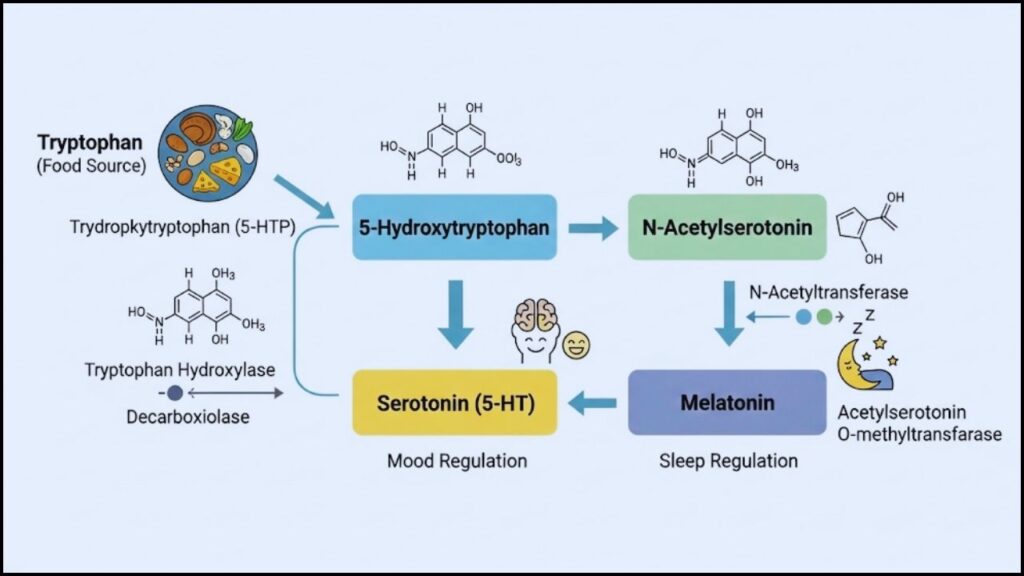
Kiwifruit
A 2011 study published in the Asia Pacific Journal of Clinical Nutrition found that adults with sleep problems who ate two kiwis one hour before bedtime for four weeks saw significant improvements. Participants fell asleep faster, slept longer, and experienced better overall sleep quality. Researchers believe this effect is linked to kiwi’s high concentration of serotonin and antioxidants, such as Vitamin C.
Tart Cherries
Tart cherries, particularly the Montmorency variety, are one of the few natural food sources of melatonin. A study from Louisiana State University found that adults who drank tart cherry juice twice a day slept nearly 90 minutes more per night on average compared to a placebo group. The effect is potent enough that researchers consider it a potential tool for managing insomnia.
Fatty Fish
Fish like salmon, mackerel, and trout are rich in vitamin D and omega-3 fatty acids, a combination that aids in the regulation of serotonin. A study published in the Journal of Clinical Sleep Medicine discovered that men who ate salmon three times a week for several months reported better sleep quality and improved daytime functioning compared to those who ate other meats.
The Gut Health and Sleep Connection
Emerging research is highlighting the profound link between the digestive system and the brain, known as the gut-brain axis. The trillions of bacteria in our gut, collectively the microbiome, play a crucial role in producing neurotransmitters, including about 95% of the body’s serotonin.
“A healthy and diverse gut microbiome is essential for stable melatonin production and reducing inflammation, both of which are critical for restorative sleep,” explained Dr. Michael Breus, a clinical psychologist and board-certified sleep specialist. “Diets rich in fiber from fruits, vegetables, and whole grains, as well as fermented foods like yogurt and kefir, promote the kind of gut environment conducive to good sleep.” This makes the case for a holistic approach to dietary sleep aids rather than focusing on a single food.
Timing and Combination Matter
Experts emphasize that it is not just what you eat, but when and how you eat it. Consuming these sleep-promoting foods one to two hours before bed allows time for digestion and for the nutrients to take effect. Furthermore, pairing tryptophan-rich foods with a source of complex carbohydrates, such as a small bowl of oatmeal with walnuts, can be more effective. The carbohydrates trigger an insulin release, which helps clear other amino acids from the bloodstream, allowing tryptophan easier passage across the blood-brain barrier.
Conversely, experts universally advise against large, high-fat meals, spicy foods, caffeine, and alcohol close to bedtime, as they can interfere with digestion and disrupt the natural sleep architecture. While dietary changes can offer significant benefits, they are not a panacea for chronic sleep disorders. “Food is a powerful tool, but it’s one part of the bigger picture of sleep hygiene,” Dr. St-Onge noted. “For those with severe or persistent insomnia, consulting a healthcare professional is essential.”
What Science Says About the Best Time to Eat Dinner for Your Metabolism and Sleep
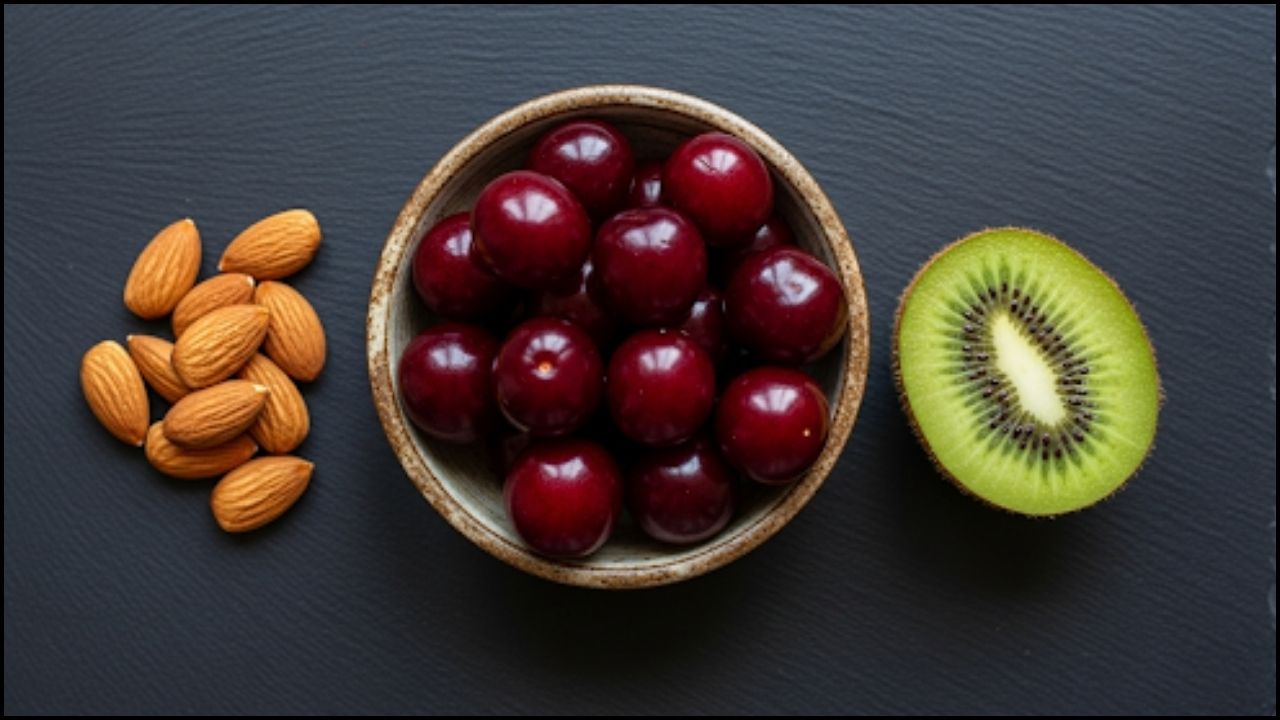

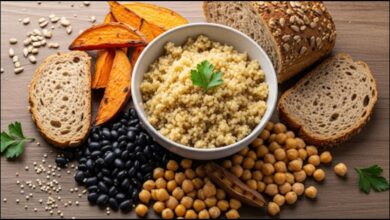 A Guide to Healthy Complex Carbohydrates for Stable Blood Sugar and Sustained Energy
A Guide to Healthy Complex Carbohydrates for Stable Blood Sugar and Sustained Energy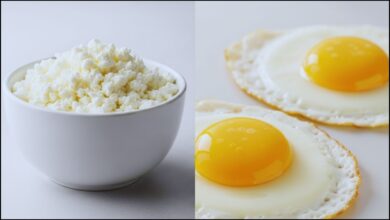 Which High-Protein Breakfast Is Superior? A Scientific Look at Eggs vs. Cottage Cheese
Which High-Protein Breakfast Is Superior? A Scientific Look at Eggs vs. Cottage Cheese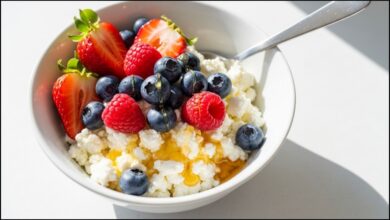 From Smoothies to Pasta Sauce, Experts Explain How to Use Cottage Cheese for a Protein Boost
From Smoothies to Pasta Sauce, Experts Explain How to Use Cottage Cheese for a Protein Boost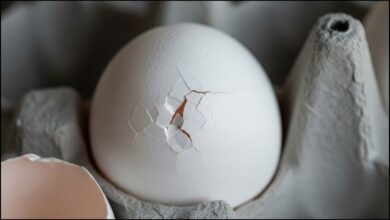 A Cracked Egg in Your Carton: Food Safety Officials Explain When to Toss It
A Cracked Egg in Your Carton: Food Safety Officials Explain When to Toss It